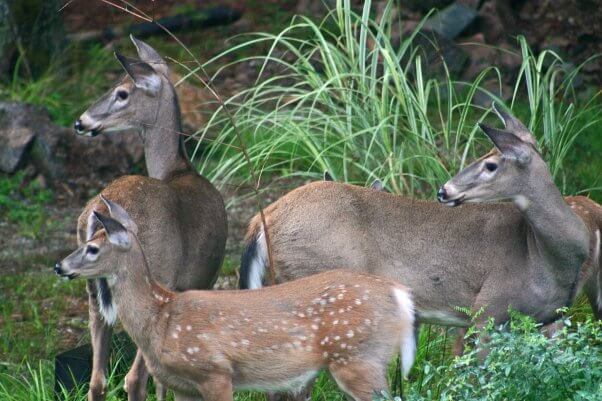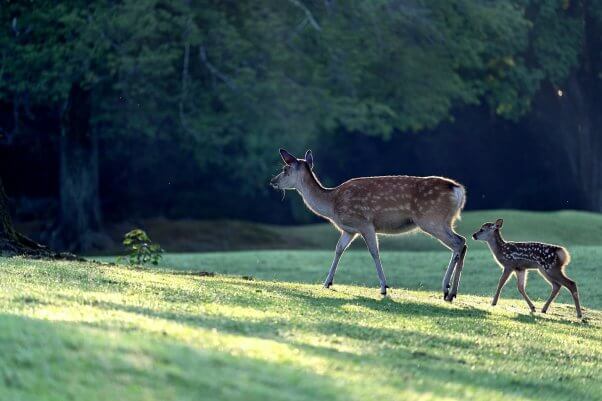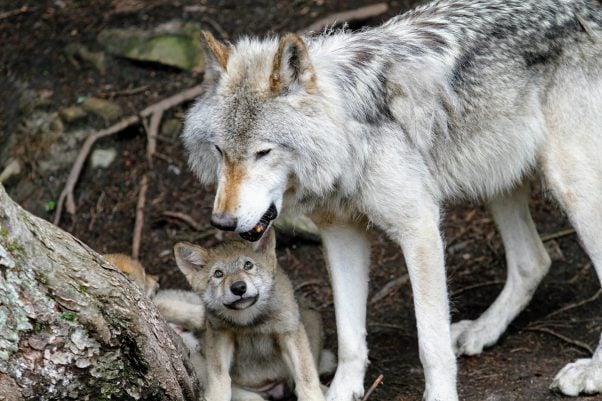Hunting interests in Pennsylvania are pushing through a bill that is wholly unholy: It would repeal an existing law in order to allow hunters to kill currently protected animals on Sundays. So PETA is taking aim at Senate Bill 67 and urging Gov. Josh Shapiro to veto it if it lands on his desk.

Under current Pennsylvania law, hunters already have three Sundays a year—plus every other day of the week—to engage in their violent pastime. Lawmakers must not strip traumatized animals of their one day of rest. Sunday is also the only day that the more than 96% of the population that prefers peaceful outdoor recreation can camp, birdwatch, hike, take photographs, and engage in a multitude of other humane outdoor activities without worrying about flying bullets and arrows.
In a letter to Pennsylvania’s governor, PETA’s faith outreach division, PETA LAMBS, which takes its name from Matthew 25:40 (“Whatever you do unto the least among my brothersand sisters, you do as unto me”), points out that most of the state’s residents regard Sunday as the Lord’s Day and believe that it should be a day when all of God’s animals can exist peacefully. The letter also notes that while some hunters may choose to use the oft-cited “dominion” verse in Genesis as an excuse to exploit, torment, and kill, many compassionate Christians maintain that God’s directive was to “rule over the Earth” as He rules over humans—meaning that we are to be loving stewards, caretakers, and protectors.

Hunting is abject cruelty. Immediately fatal shots are rare, especially when animals are fleeing for their lives, and many of them sustain injuries that lead to prolonged, agonizing deaths. After studying compiled reports of “wounding rates” for waterfowl hunting, Canadian waterfowl biologist Dr. Robert Allison found that “[b]etween 20 and 40% of ducks and geese struck by shotgun pellets are never retrieved.” Geese choose a partner for life and go through a long grieving process when their mate dies. Many choose never to seek another mate.
Estimates by the Texas Parks & Wildlife Department, members of the Maine BowHunters Association, and other groups put the “wound rate” for bowhunting of deer at an astounding 50%. An article in Bowhunter magazine admitted the following:
“It is disquieting to know that we probably wound one deer for every animal harvested.”
A piece in Western Bowhunter admonished:
“Don’t talk to anyone about wounding animals, especially in public places or among non-hunters.”
Fawns stay by their mothers’ side for up to two years, and when hunters kill these does, starvation is a likely fate for their orphaned babies. Hunting also disrupts migration and hibernation patterns. The stress of earsplitting gunfire and constant fear hinders animals’ ability to eat, drink, rest, find or build shelters, mate, and do all the things they must do in order to survive. And hunters often harm and kill “non-target” animals.

And this bloody hobby is just as pointless as it is cruel.
Hunters only “manage” deer populations to suit their own interests. When undisturbed by humans, deer reproduce only to the level that their habitat and food sources can support. Pregnant deer even reabsorb their fetuses when resources are scarce. After hunters kill a large number of deer, the unnatural spike in available necessities causes increased breeding and more sets of twins. Hunters and wildlife departments also frequently kill natural predators such as wolves, coyotes, and bears to ensure that there are plenty of targets for themselves, disrupting the balance of the ecosystem. Predators have no choice but to eat meat. Humans can be abundantly nourished with healthy, humane plant-based foods, as God instructs in Genesis 1:29.
Take Action
Pennsylvania residents and anyone else who doesn’t want animals to be harmed for human entertainment can post “No Hunting” signs on their property, protest against organized hunts, and spread deer repellent or human hair (from barbershops) to deter deer from hunting areas.
The post ‘Can’t Animals Get One Day of Peace?’ PETA Asks Pennsylvania Governor appeared first on PETA.
This post was originally published on Animal Rights and Campaign News | PETA.